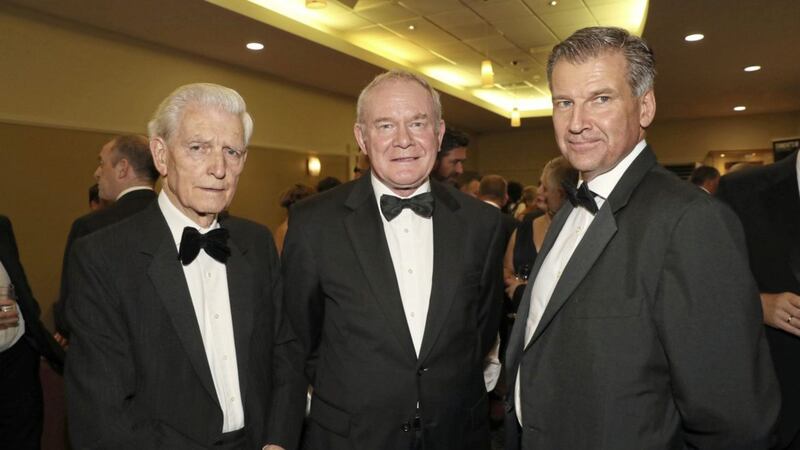IN more than four decades in journalism, Noel Doran encountered all of the heavyweight political figures of the recent past.
Now, as he retires and reflects on his time in the industry and 25 years as editor of The Irish News, he thinks back to those encounters with a smile.
A posting to Derry as a reporter for the Belfast Telegraph took Doran not only to the centre of many of the big stories of the day but also into the fiefdom of two political figures who dominated the scene. He said: “John Hume was hard to get to know on a personal basis. He was a world figure. He could head to Washington or Brussels and every door would open for him so you couldn’t really expect him to drop everything when The Irish News rang up.
“He was focused on the peace project, he was the SDLP’s main asset and the electorate just revered him.
“The decline in his health was very significant and almost a Greek tragedy: he delivered what he had set out to do but his health suffered along the way.
“With Martin McGuinness, he was the boss, he was the leader. He was the leader of the IRA and that meant life or death for many people. His is an extraordinary story but when you look at it in the round, was he a figure who contributed centrally to the progress that has been achieved? I think he undoubtedly was.
“I can recall in the early days him being released from Castlereagh and me being sent to knock on his door to ask him about the experience. It was early in the morning and I rapped the door. This was in the house he used to live in so you’re in the middle of the Brandywell and dogs were barking and I could feel curtains opening to look at me.
“All of a sudden, this curly-haired head pops out through an upstairs window and it was Martin asking me what I wanted. I told him I was here to ask him about Castlereagh and he said, ‘you better come in then’ and so I’m sat in Martin McGuinness’ kitchen having a cup of tea and shooting the breeze.”
From nationalism to unionism and all shades in between, editing the paper has seen him cover all of the big political stories and personalities pre and post ceasefire and Good Friday Agreement.
That’s a period from Sunningdale to RHI and various collapses and reinstatements of the institutions at Stormont.
On the unionist side, Doran’s dealings go back to his early days as a cub reporter and took him right through to David Trimble, Peter Robinson and Arlene Foster.
He said: “I had known the two main leaders of unionism in the 80s and into the 90s in Paisley and Molyneaux because my first job was at the Antrim Guardian and the Ballymena Observer. Paisley would always take the call but he was in charge, he was the dominant personality.
“The firebrand stuff was about performance. He would take the opportunity to lambast the media and then he would laugh about it afterwards.
“In later years, when I was editor of The Irish News, David Trimble would have had me up to his office at Stormont for one-on-ones. He was very generous with his time.
“He was a deep thinker and probably ahead of his time. Not dissimilar to Hume, he wasn’t your natural politician. He was a bit of an accidental politician, he was an academic and he never became comfortable with the whole political process and he was under immense pressure at a time.”
On the notion of whether he enjoys looking back, Doran concludes: “In some ways it goes with the territory and it can be healthy to assess where you’re coming from, where you’re going to without getting carried away with it. Because at the end of the day, in journalism we’re observing as opposed to being centre stage.”








